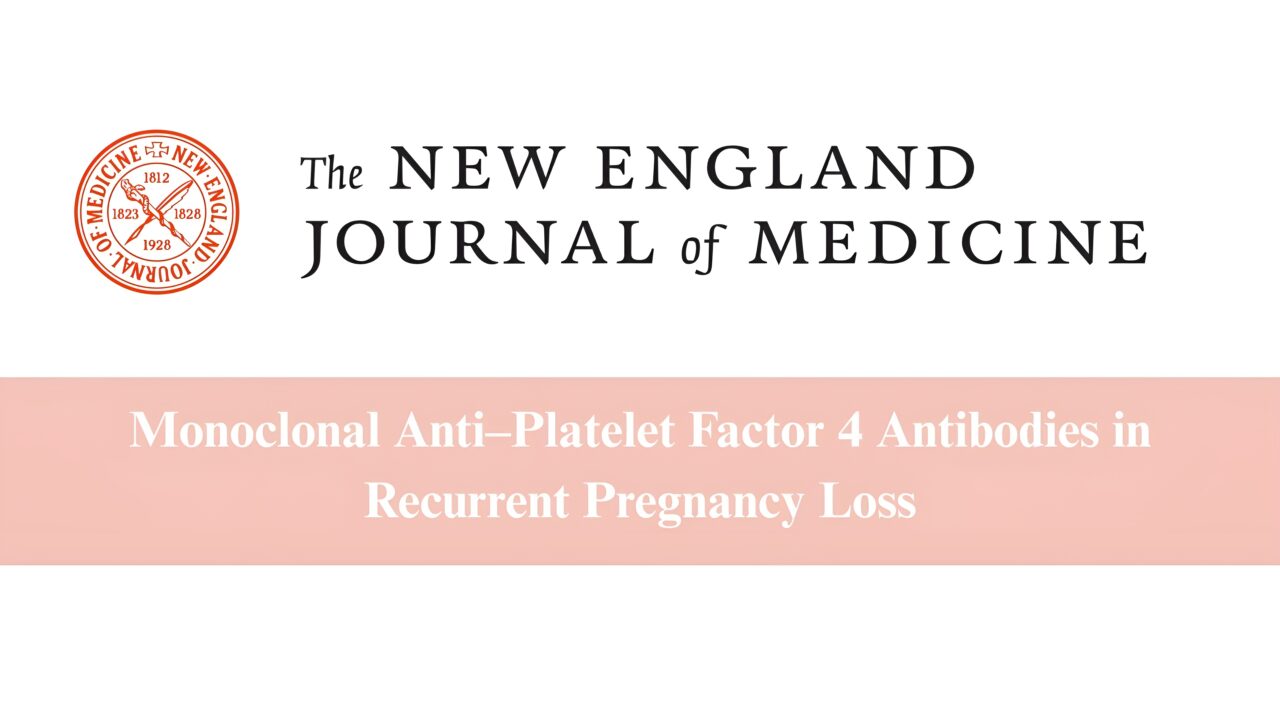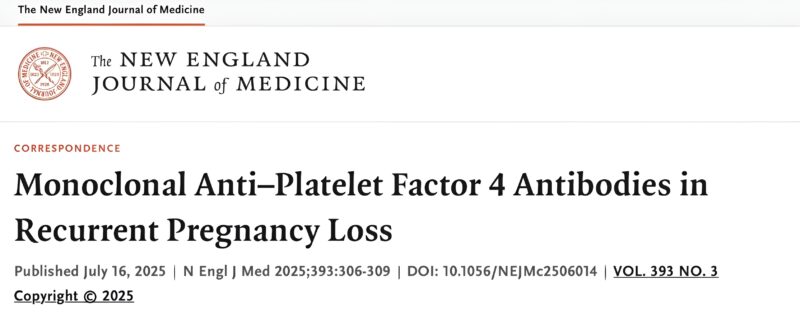
A Potential Link to Recurrent Pregnancy Loss: Monoclonal Anti-PF4 Antibodies’ Role
Flora Peyvandi, Professor of Internal Medicine-Hemostasis and Thrombosis Unit, University of Milan, former President of ISTH, shared a post on X:
”Monoclonal Anti –Platelet Factor 4 Antibodies in Recurrent Pregnancy Loss.”
Read the full article here.
In a newly published article ”Monoclonal Anti–Platelet Factor 4 Antibodies in Recurrent Pregnancy Loss ” in The New England Journal of Medicine (NEJM) by Natalie R. Bavli et al., the role of monoclonal anti-platelet factor 4 antibodies in cases of recurring misscarriage is discussed.
Emerging evidence suggests that monoclonal anti–platelet factor 4 (PF4) antibodies may play a role in persistent thrombotic thrombocytopenia.
In a recent report, two patients with monoclonal anti-PF4 antibody-mediated thrombosis also experienced chronic intermittent thrombocytopenia and recurrent first-trimester pregnancy losses.
This combination of clinical findings points to a potential association between these antibodies and obstetrical complications, including recurrent pregnancy loss.
Further research in larger cohorts is needed to better understand this possible connection and its implications for maternal health.

More on the latest scientific advancements in the field of thrombosis featured in Hemostasis Today.
-
Jan 22, 2026, 15:36We Must Roll Up Our Sleeves And Help: José Antonio García Erce on Plasma Donation
-
Jan 22, 2026, 15:25Nita Radhakrishnan on Challenges In Congenital Afibrinogenemia
-
Jan 22, 2026, 15:10Jin Q Gives a Summary of 2025’s Most Impactful Cell and Gene Therapy Milestones
-
Jan 22, 2026, 14:57Nirav Dhanesha on CD14 Acting As A Functional Driver of DVT
-
Jan 22, 2026, 11:41Jamilla Goedegebuur and Colleagues on VTE Management in Case of PAD
-
Jan 22, 2026, 11:28Abdulrahman Katib on API-CAT Trial’s Evaluation of Apixaban Dosing
-
Jan 22, 2026, 11:19Bruno Odisio: Ablation Margins Are Software-Dependent
-
Jan 22, 2026, 10:38Pedro Perez: The VTE Market Is Clearly Entering Its Next Phase
-
Jan 22, 2026, 10:29Marvin Garcia Reyes Presents a Case of Aorto-Visceral and Aorto-Iliac Thrombosis
